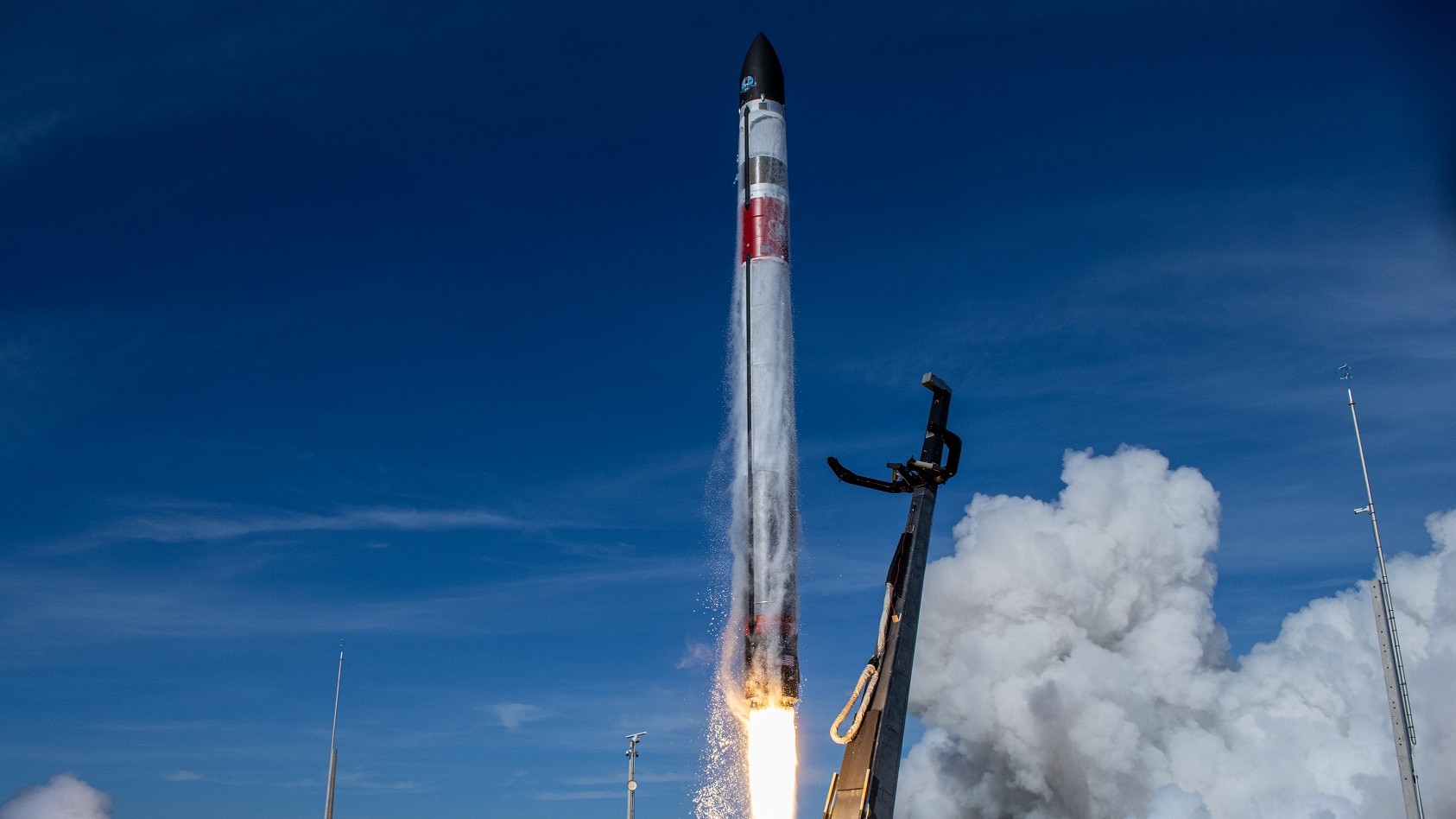
Rocket Lab aims to bounce back tonight (Dec. 14) from a launch failure.
The company's Electron rocket is scheduled to lift off from New Zealand during a two-hour window that opens tonight at 11 p.m. EST (0400 GMT and 5 p.m. New Zealand time on Dec. 15), carrying a satellite for the Japanese Earth-imaging company iQPS to orbit.
You can watch the launch live here at Space.com courtesy of Rocket Lab, or directly via the company. Coverage is expected to begin 20 minutes before the launch window opens.
Related: September launch failure likely caused by 'electrical arc,' Rocket Lab says
It will be Rocket Lab's first launch since Sept. 19. Electron suffered an anomaly about 2.5 minutes into flight that day, resulting in the loss of one of San Francisco company Capella Space's Earth-observing satellites.
Rocket Lab soon traced the problem to an unwanted "electrical arc," which shorted out the battery packs that provide power to the 59-foot-tall (18 meters) Electron's second stage. The company says it has implemented multiple corrective measures, including an enhanced testing regime here on Earth, to ensure the problem doesn't crop up again.
Tonight's mission, which Rocket Lab calls "The Moon God Awakens," will deliver iQPS' QPS-SAR-5 satellite to a circular orbit 357 miles (575 kilometers) above Earth, where it will join the QPS-SAR-6 craft. (QPS-SAR-5 is named Tsukoyomi-1 after the Japanese god of the moon, which explains Rocket Lab's mission moniker.)
"iQPS’s satellites are small, high-performance SAR [synthetic aperture radar] satellites that use a lightweight, large, stowable antenna to collect high-resolution images of Earth, even through clouds and adverse weather conditions," Rocket Lab wrote in a mission description. "Ultimately, the iQPS constellation is planned to have 36 satellites capable of monitoring specific fixed points on Earth every 10 minutes."
Payload integration is complete for our 42nd Electron launch! We’ve got a final step to clear before launch day – completing a wet dress rehearsal to confirm all systems are ready for lift-off. As such, we’re currently targeting no earlier than 13 Dec NZT for the launch of The… pic.twitter.com/0dz60wkxrwNovember 26, 2023
Tonight's launch will be the 42nd to date for the Electron, which gives small satellites dedicated rides to Earth orbit and beyond. (An Electron launched the CAPSTONE cubesat toward the moon in June 2022, and Rocket Lab aims to launch a private life-hunting mission to Venus in 2024.)
Before September's anomaly, the most recent Rocket Lab mishap occurred in May 2021, when an Electron suffered a problem with its second stage.







